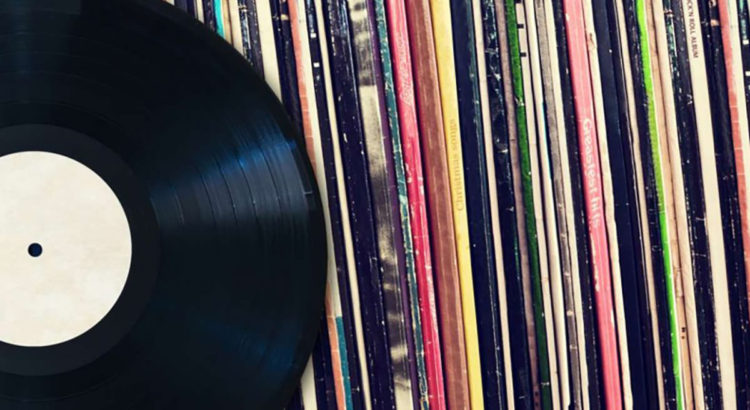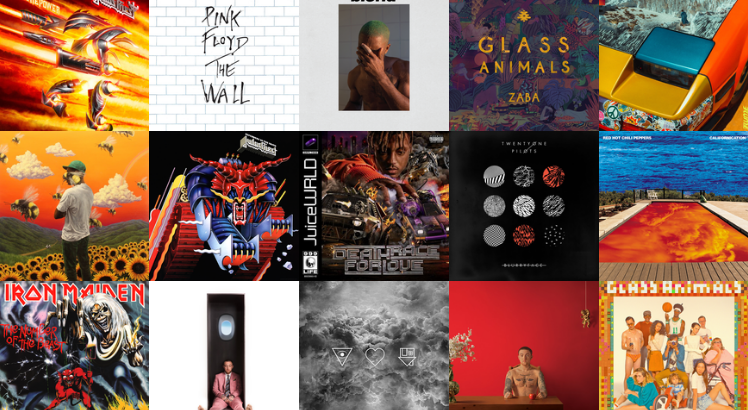One of the most unrecognized and unappreciated music genres is ambient music; I should know, I hadn’t really listened to an ambient album until this year. It wasn’t out of strong feelings either, it was just a lack of knowledge about what defines good ambient music and what the purpose of ambient music is in relation to other genres. Personally, I ascribe a specific emotion or mood to certain genres, just based on my experiences with them and their energy. For example, I listen to metal to get angry or determined, classic rock to be happy or calm down, hip hop to be challenged musically, classical to feel studious or refined, etc. Previously, I associated ambient music with boring music, simple to make and unimportant. Only recently, when I started listening to the Monument Valley soundtrack on vinyl in my room, did I start to appreciate the unique place of ambient music. Now I want to present three of my current favorite ambient albums and give some thoughts on what makes each one stand out.
:format(jpeg):mode_rgb():quality(90)/discogs-images/R-8547165-1470877070-4724.png.jpg) If you’ve been keeping up with my posts, you’ll know I already discussed Monument Valley in detail and how much I love it for its style and simplicity. Those same principles work just as effectively on its soundtrack, which is airy, vibrant, and absolutely gorgeous. While some might argue that it belongs in a different genre, I would say that the subtle instrumentation and clear effort put into the sound design and composition place it firmly in the ambient genre. This record has been my first experience with ambient music and it has made me realize that ambient music is meant to be appreciated thoughtfully; each note is placed with purpose and every silence is more expressive, since there are no distractions from the minimal atmosphere. Other music genres often become formulaic (intro, hook, bridge, chorus, repeat), but ambient music is forced to do more with less, leading to really fascinating instrumentation and musical development.
If you’ve been keeping up with my posts, you’ll know I already discussed Monument Valley in detail and how much I love it for its style and simplicity. Those same principles work just as effectively on its soundtrack, which is airy, vibrant, and absolutely gorgeous. While some might argue that it belongs in a different genre, I would say that the subtle instrumentation and clear effort put into the sound design and composition place it firmly in the ambient genre. This record has been my first experience with ambient music and it has made me realize that ambient music is meant to be appreciated thoughtfully; each note is placed with purpose and every silence is more expressive, since there are no distractions from the minimal atmosphere. Other music genres often become formulaic (intro, hook, bridge, chorus, repeat), but ambient music is forced to do more with less, leading to really fascinating instrumentation and musical development.
 Another ambient album I’ve been listening to is the Minecraft soundtrack, Volume Alpha by C418. You might be surprised to see another game soundtrack on here, especially one that you wouldn’t recognize if you haven’t played the game. However, it has recently become appreciated as a truly special ambient album; people who play the game might not be able to tell you a song or what it sounds like, but they’ll be able to hear it and tell you exactly where it’s from. Most interesting to me is how well the soundtrack complements the style of the game, but also how well it stands alone. It features a lot of bright piano and synths, along with some really unique instruments that are folksy and adventurous. It’s a great example of the creativity that ambient albums embody, not only in composition but also in atmosphere. Whether in games or as stand alone projects, ambient music is often interpreted as a means of creating atmosphere with background music, but there exist many albums such as this one that are even more interesting and unique when appreciated alone.
Another ambient album I’ve been listening to is the Minecraft soundtrack, Volume Alpha by C418. You might be surprised to see another game soundtrack on here, especially one that you wouldn’t recognize if you haven’t played the game. However, it has recently become appreciated as a truly special ambient album; people who play the game might not be able to tell you a song or what it sounds like, but they’ll be able to hear it and tell you exactly where it’s from. Most interesting to me is how well the soundtrack complements the style of the game, but also how well it stands alone. It features a lot of bright piano and synths, along with some really unique instruments that are folksy and adventurous. It’s a great example of the creativity that ambient albums embody, not only in composition but also in atmosphere. Whether in games or as stand alone projects, ambient music is often interpreted as a means of creating atmosphere with background music, but there exist many albums such as this one that are even more interesting and unique when appreciated alone.
 Last but not least is this gorgeous record Kankyo Ongaku (Japanese Ambient, Environmental & New Age Music 1980-1990) by various Japanese artists. I never would have found this if it hadn’t been reviewed by theneedledrop, who gave it a very favorable review and piqued my interest. This album stands apart from the first two, not only because it is a stand alone ambient project, but because of its Japanese compositional influences. It fits the common mold of ambient music, featuring crashing waves, chirping birds, and other natural sounds (as expected by the title), but it defies the typical boring stereotypes that usually accompany that style. It does so by being expertly crafted and full of intention; the opening track itself is a testament to the articulate style of the album, featuring precisely placed bells and drones, each with a specific balance and design that creates a thoughtful, meditative space. The whole album is intricate beneath the surface, and requires sharp attention to detail; I listen to it with headphones at night, when everything is quiet and I can truly appreciate every perfectly placed note. This album is the perfect example of what makes ambient music so unique, and I hope that more people can develop an appreciation for these qualities just as I have.
Last but not least is this gorgeous record Kankyo Ongaku (Japanese Ambient, Environmental & New Age Music 1980-1990) by various Japanese artists. I never would have found this if it hadn’t been reviewed by theneedledrop, who gave it a very favorable review and piqued my interest. This album stands apart from the first two, not only because it is a stand alone ambient project, but because of its Japanese compositional influences. It fits the common mold of ambient music, featuring crashing waves, chirping birds, and other natural sounds (as expected by the title), but it defies the typical boring stereotypes that usually accompany that style. It does so by being expertly crafted and full of intention; the opening track itself is a testament to the articulate style of the album, featuring precisely placed bells and drones, each with a specific balance and design that creates a thoughtful, meditative space. The whole album is intricate beneath the surface, and requires sharp attention to detail; I listen to it with headphones at night, when everything is quiet and I can truly appreciate every perfectly placed note. This album is the perfect example of what makes ambient music so unique, and I hope that more people can develop an appreciation for these qualities just as I have.









